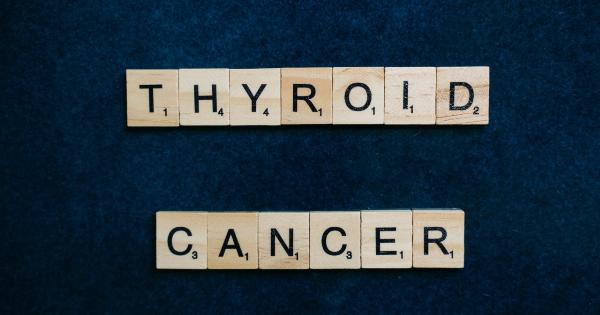Hyperthyroidism, also known as overactive thyroid, is a condition that occurs when your thyroid gland produces too much thyroid hormone.
This hormone plays a crucial role in regulating your body’s metabolism, so if you have an overactive thyroid, it can affect many parts of your body, causing a range of symptoms and health problems.
What is the thyroid gland?
Before we explore the symptoms of hyperthyroidism, it’s important to understand what the thyroid gland is and how it works. The thyroid is a butterfly-shaped gland located in your neck, wrapped around your windpipe.
It produces hormones that regulate your body’s metabolism and help control many of your body’s functions, including:.
- Your heart rate
- Your body temperature
- Your weight
- Your energy levels
- Your menstrual cycle
- Your cholesterol levels
What causes hyperthyroidism?
Hyperthyroidism occurs when your thyroid gland produces too much thyroid hormone. This can happen for many reasons, including:.
- Graves’ disease, an autoimmune disorder that causes your immune system to attack your thyroid gland, causing it to produce too much thyroid hormone.
- Thyroid nodules or lumps, which can cause an overproduction of thyroid hormones.
- Thyroiditis, an inflammation of the thyroid gland that can cause a temporary increase in thyroid hormone production.
- Excessive iodine intake, usually from supplements or certain medications.
What are the symptoms of hyperthyroidism?
The symptoms of hyperthyroidism can vary depending on the severity of the condition and the individual. Some common symptoms include:.
- Unexpected weight loss, even with increased appetite
- Rapid or irregular heartbeat, or palpitations
- Anxiety, irritability, or nervousness
- Tremors in the hands or fingers
- Heat intolerance or increased sweating
- Changes in bowel patterns, including diarrhea
- Difficulty sleeping
- Changes in menstrual patterns, including lighter or heavier periods than usual
- Enlargement of the thyroid gland, also known as a goiter
Some people with hyperthyroidism may also experience a condition called Graves’ ophthalmopathy, which causes eye problems, including bulging eyes, eye pain, and double vision.
How is hyperthyroidism diagnosed?
If you are experiencing symptoms of hyperthyroidism, your doctor may perform several tests to diagnose the condition. These may include:.
- A physical exam to check for an enlarged thyroid gland
- Blood tests to measure thyroid hormone levels, as well as levels of thyroid-stimulating hormone (TSH), which is produced by the pituitary gland and regulates thyroid hormone production
- A radioactive iodine uptake test, which involves taking a small amount of radioactive iodine and measuring how much is absorbed by your thyroid gland. This test can help determine whether your thyroid gland is overactive.
- A thyroid ultrasound, which can detect nodules or abnormalities in the thyroid gland
How is hyperthyroidism treated?
The treatment for hyperthyroidism depends on the underlying cause and the severity of the condition. Some common treatment options include:.
- Antithyroid medication, which can help slow the production of thyroid hormone.
- Radioactive iodine therapy, which involves taking a small amount of radioactive iodine, which is absorbed by your thyroid gland and destroys part of the gland, reducing thyroid hormone production.
- Surgery to remove part or all of the thyroid gland, which can help reduce thyroid hormone production.
- Beta blockers, which can help relieve symptoms such as rapid heartbeat and anxiety.
Your doctor will work with you to develop a treatment plan that is best for your individual needs, taking into account your age, overall health, and the severity of your condition.





























